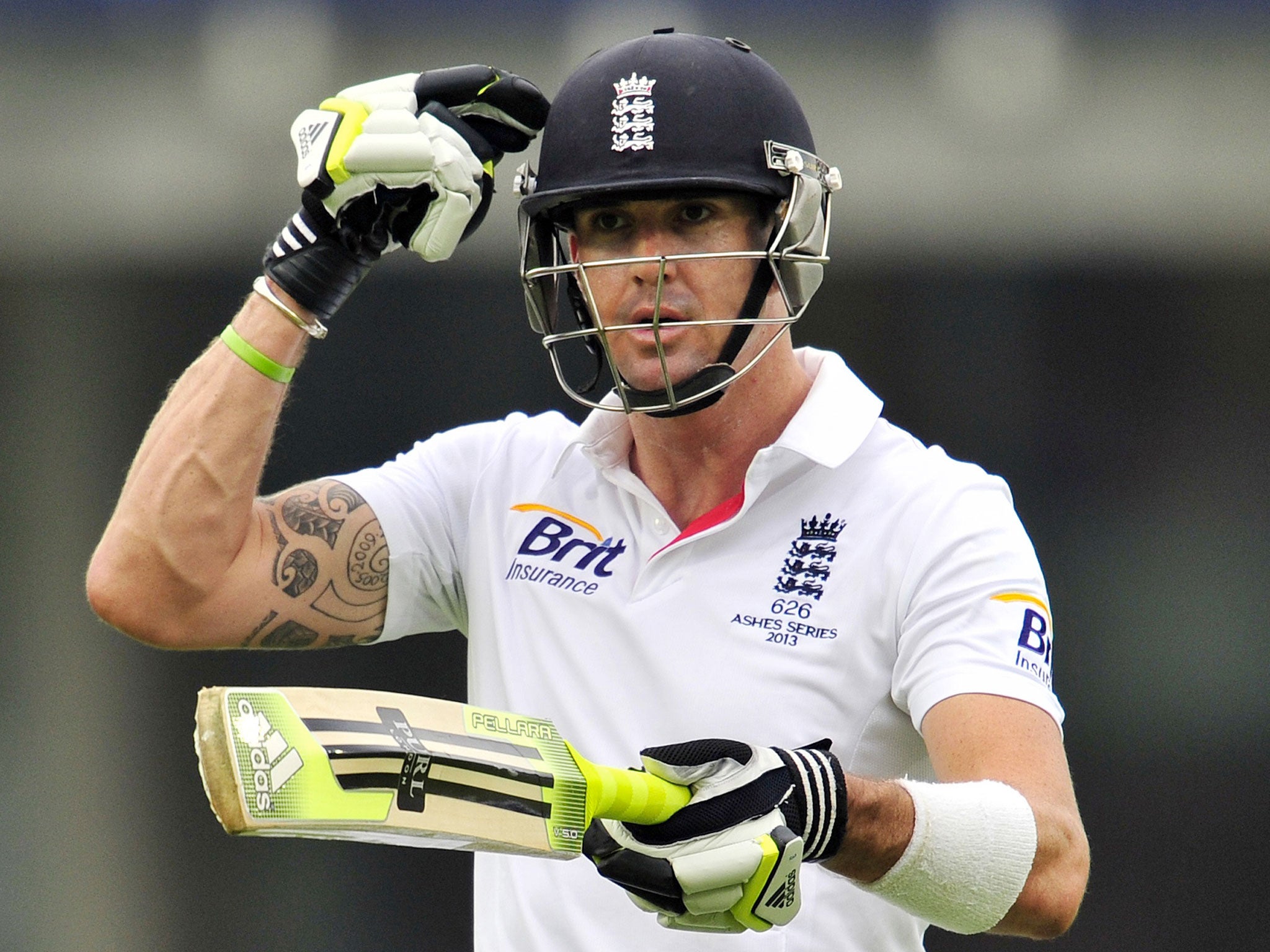England cricketer Kevin Pietersen wins payout over Specsavers advert that suggested he cheated Hot Spot technology during the Ashes
Commercial may have implied Pietersen tampered with his bat

Your support helps us to tell the story
From reproductive rights to climate change to Big Tech, The Independent is on the ground when the story is developing. Whether it's investigating the financials of Elon Musk's pro-Trump PAC or producing our latest documentary, 'The A Word', which shines a light on the American women fighting for reproductive rights, we know how important it is to parse out the facts from the messaging.
At such a critical moment in US history, we need reporters on the ground. Your donation allows us to keep sending journalists to speak to both sides of the story.
The Independent is trusted by Americans across the entire political spectrum. And unlike many other quality news outlets, we choose not to lock Americans out of our reporting and analysis with paywalls. We believe quality journalism should be available to everyone, paid for by those who can afford it.
Your support makes all the difference.It was one of the burning questions of this summer’s Ashes. Along with whether it was still as much fun as it used to be to beat the Aussies and England’s glacial over rate – the issue of whether batsmen had evolved a secret defence to cheat the controversial Hot Spot technology dominated the series.
Today England cricketer Kevin Pietersen accepted substantial libel damages over an advert by Specsavers that sought to exploit the row by suggesting he may have tampered with his bat in a bid to avoid being found out by the shot detector.
The high street opticians accepted that the allegation was completely untrue and without any foundation at the High Court.
The advert – part of the “Should’ve gone to Specsavers” series which uses topical events to highlight the brand – featured a picture of Pietersen alongside the statement "'Bat tampering' in the #Ashes? Apparently Hot Spot should've gone to Specsavers.”
It followed claims in the Australian media that some players were wrapping silicone tape around their bats to avoid the technology – part of the much-discussed Decision Review System - which purports to detect the slightest of nicked edges that may have been missed by an umpire.
Pietersen’s solicitor Louise Price said the advert published on the company's Twitter account and Facebook page in August, as well as in newspapers and magazines was a "serious and defamatory allegation”.
Specsavers Optical Group Ltd withdrew the campaign. It apologised for the distress and embarrassment caused, agreeing to pay substantial damages and legal costs.
In a statement the company said: “During the 2013 Ashes series we published a 'Should've Gone to Specsavers' advert which suggested that Kevin Pietersen may have tampered with his bat in an attempt to prevent Hot Spot technology working. We did not intend to imply this suggestion.”
The batsman was incensed in the summer when Australian network Channel 9 – which is due to broadcast this winter’s return series Down Under – linked his second innings dismissal at Old Trafford to long-standing questions over the technology.
Even though there appeared to be the sound of a connection between bat and ball a Hot Spot review failed to find any evidence of contact. Despite the contradiction Pietersen was given out anyway.
Doubts were voiced over the system by a number of players and observers including England captain Alastair Cook, who acknowledged there had been “three or four strange occurrences” involving the system.
Pietersen, tweeted at the time: “Horrible journalism yet again! My name brought up in hotspot crisis suggesting I use silicon to prevent nicks showing! Such hurtful lies.
“I am never afraid of getting out! If I nick it, I'll walk. To suggest I cheat by covering my bat with silicon infuriates me. How stupid would I be to try & hide a nick when it could save me on an LBW appeal, like in 1st innings where hotspot showed I nicked it.”
Following the announcement of today's payout, Pietersen said on Twitter that he would be donating the money to charity.
At the height of the row the England and Wales Cricket Board demanded an apology from Channel 9 and Warren Brennan, who adapted Hot Spot technology for cricket, said that the International Cricket Council (ICC) should consider banning all bat coatings.
Hot Spot cameras employ thermal imaging technology similar to that used by helicopter pilots in Afghanistan. Both England and Australia support the introduction of Snickometer which monitors for sound during this winter’s grudge series. The ICC has called for an independent assessment which could be complete in time for the first Test in Brisbane.
Join our commenting forum
Join thought-provoking conversations, follow other Independent readers and see their replies
Comments